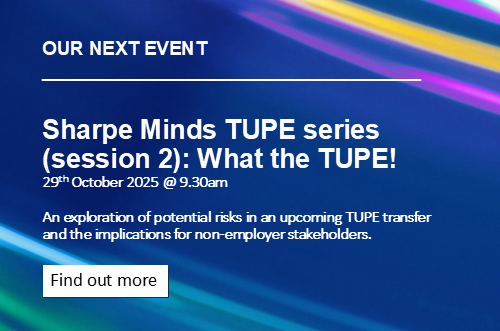- Details
Jumping to conclusions: Final Statements, liquidated damages and material breaches of natural justice
Michael Comba looks at a recent Technology and Construction Court case that provides useful guidance on the JCT’s procedural requirements on disputing Final Statements.![]()
CC Construction Limited v Raffaele Mincione [2021] EWHC 2502 (TCC)
In enforcement proceedings, the court considered the role of the Notice of Completion of Making Good in the JCT in determining due dates for final payment, the conclusivity of the Final Statement, and whether the Adjudicator breached rules of natural justice in failing to consider a defence of set-off.
The facts
Mr Mincione (the Employer) appointed CC Construction Limited (the Contractor) to design and build the shell and core of a new house. The contract was an amended form of the JCT Design and Build Contract, 2011 edition (the Contract).
An adjudication followed the refusal of the Employer to pay approximately £485k, and its alleged failure to issue an in-time pay less notice, following service of a Final Statement. The Employer argued a payless notice was issued in time; the due date had been delayed by the submission of a Notice of Completion of Making Good (NCMG). He also argued that the Final Statement was not conclusive owing to his letter in response that disputed its contents.
The Employer further argued that he had a set-off defence by way of liquidated damages for delay that could be levied against the Contractor.
The Adjudicator found for the Contractor; the pay less notice was issued out of time. The Adjudicator also considered he did not have jurisdiction to consider the Employer’s set-off defence as it was not part of the dispute before him.
The judgment
The court agreed with the Adjudicator that the due date was determined by the date of the Final Statement. The NCMG could not be relied upon by the Employer to claim the Final Statement was premature as no defects requiring rectification had been notified.
The judge, however, found the Employer’s letter did prevent the Final Statement becoming conclusive; the Employer was not required to formally commence proceedings. The requirement under clause 1.8.2 of the Contract provided for differing means to dispute a final statement (issuing a notice of dispute and/or commencing formal proceedings) rather than a cumulative means to do so. However, given the court’s findings on the due date, this had little material effect.
In respect of the liquidated damages, the court found that the Adjudicator had materially breached the rules of natural justice by failing to consider the Employer’s arguments. Applying Global Switch, the judge considered that, as the Contractor sought a particular sum to be paid, the Employer was “entitled to rely on all available defences”.
The judge opted to sever the decision, determining that as any set-off only accounted for a portion of the sums claimed (approximately £343k) the balance could be safely enforced.
Analysis
This case provides useful guidance on the JCT’s procedural requirements on disputing Final Statements. It is not necessary for parties to bring a Notice of Dispute (which itself does not need to be in a particular form) and commence formal proceedings.
There is also useful guidance on the role of the NCMG. It is not within the Employer’s gift to use this notice to determine payment due dates to its own advantage.
Finally, adjudicators will need to consider their jurisdiction in circumstances where defences are presented, particularly in payment disputes where the case law is clear that employers may rely on all available defences. Adjudicators’ decisions must be clearly worded to show that defences, even those without merit, have been given due consideration.
Michael Comba is a Solicitor at Sharpe Pritchard LLP.
For further insight and resources on local government legal issues from Sharpe Pritchard, please visit the SharpeEdge page by clicking on the banner below.
This article is for general awareness only and does not constitute legal or professional advice. The law may have changed since this page was first published. If you would like further advice and assistance in relation to any issue raised in this article, please contact us by telephone or email
|
Click here to view our archived articles or search below.
|
|
ABOUT SHARPE PRITCHARD
We are a national firm of public law specialists, serving local authorities, other public sector organisations and registered social landlords, as well as commercial clients and the third sector. Our team advises on a wide range of public law matters, spanning electoral law, procurement, construction, infrastructure, data protection and information law, planning and dispute resolution, to name a few key specialisms. All public sector organisations have a route to instruct us through the various frameworks we are appointed to. To find out more about our services, please click here.
|
|
OUR RECENT ARTICLES
October 22, 2025
The ‘Hillsborough Bill’ – Voices for victims or just more lip service?Jonathan Blunden, Alastair Lewis and Conrad Turnock talk through the recently introduced 'Hillsborough' Bill, aimed at giving victims of state injustice a meaningful voice.
October 09, 2025
Twelve New Towns for the FutureJames Goldthorpe and Conrad Turnock summarise the New Towns Taskforce’s report to Government, published on 28th September, and ask - what next?
September 30, 2025
Key updates to the Administrative Court GuideChloe McQuillan and Jonathan Blunden dive into recent amendments to the Administrative Court Judicial Review Guide, exploring what they mean for practitioners.
September 12, 2025
Algorithm and State: Automated decision-making in the UK Public SectorBeatrice Wood explores the impact of Automated Decision making on the UK government and local authority sector.
|
|
OUR KEY LOCAL GOVERNMENT CONTACTS
|
||
|
Partner 020 7406 4600 Find out more |
||
|
Partner 020 7406 4600 Find out more |
||
|
Rachel Murray-Smith Partner 020 7406 4600 Find out more |







 Catherine Newman
Catherine Newman
